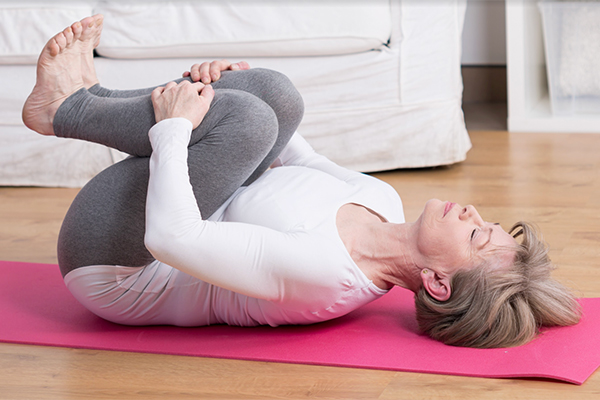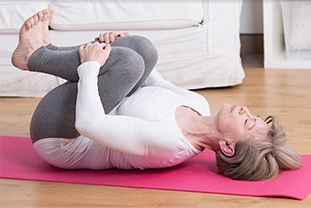
April is National Stress Awareness Month, an excellent opportunity to explore how stress affects physical and mental well-being. We commonly experience stress and aches and pains, which are chronic issues for many of us. Undeniably, back pain is one of the most common symptoms we collectively share. Some 16 million adults suffer from back pain and are limited in daily activities.1
Aside from the discomfort that interferes with your daily routine, the inability to pinpoint a cause or an underlying event can be the most frustrating thing about back pain. The reality is that many back pain cases could result from stress and anxiety. When stressed or anxious, our bodies protect us from harm by undergoing chemical and physical reactions.
Cortisol and adrenaline are released, and there is typically an involuntary tightening of your muscles. The neck, shoulders, and spine are commonly affected. Back pain, specifically lower back pain, can be caused by prolonged tension in these areas.
When experiencing stress, people will feel sore, which affects their mood and makes them less active. This discomfort and muscle tension in the back can impact one's active lifestyle.
The reduced physical activity also causes their muscles to weaken and tighten further, leading to more pain.
Simple lifestyle changes can reduce some of the stress and back pain:
- Stretch: Stretching is crucial. It helps to keep the muscles stretched to prevent further pain. Ensure you're stretching daily to avoid any "freezing" of the muscle that may create discomfort.
- Practice Good Posture: It is essential to pay attention to any bad posture that you may do due to your anxiety and stress. Ensuring your shoulders are back and your head is high can help correct poor posture.
- Exercise: Take a daily walk, exercise - do activities that keep your back strong and also help relieve stress. Focus on keeping your core engaged in protecting your spine while exercising.
- Massage: Massage is a handy tool for both back pain and stress. It is a great way to work out muscle aches, and you'll often find your back is less painful than it was previously.
- Acupuncture: Acupuncture points help energy flow and stimulate the body's natural hormones to reduce the level of stress hormones like cortisol.
It is important to see a doctor who will help you develop a plan to reduce the stress placed on muscles, tendons, and ligaments and manage the pain.
NewportCare Medical Group is a comprehensive specialty group located in Newport Beach, California specializing in advanced non-surgical and surgical treatments for a wide range of orthopedic conditions.







